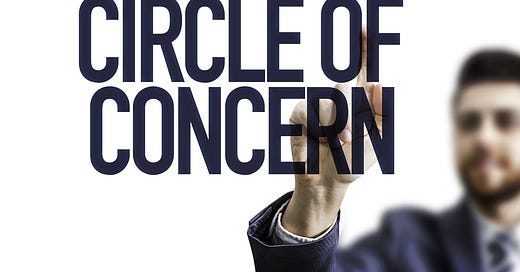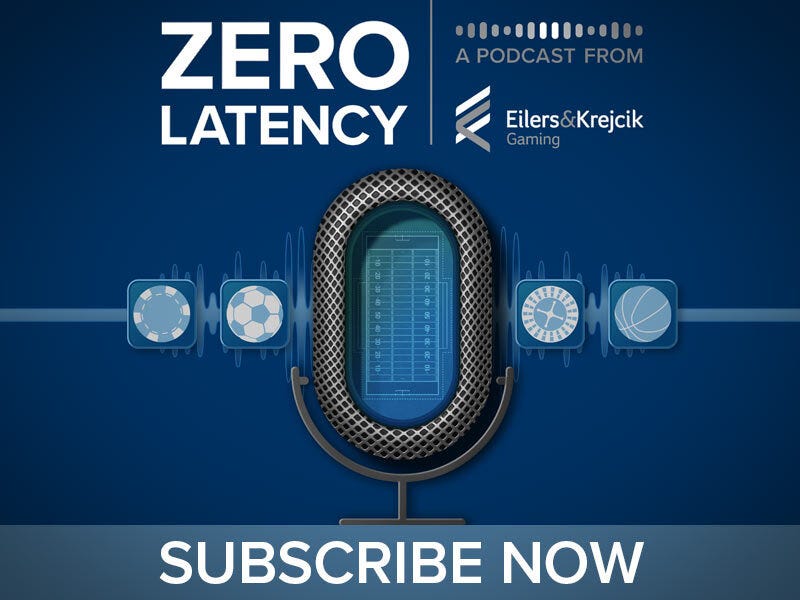Legitimate Concerns
The online gambling cannibalization debate is not going away, and online casino and poker are going to be a difficult lift until these concerns are quelled.
The Bulletin Board
VIEWS: Land-based casinos are deeply concerned about online gambling legalization; should they be?
LEGISLATIVE ROUNDUP: North Carolina’s college prop betting ban; Arkansas will take its time with online casinos.
QUICK HITTER: MGM and others are reportedly kicking Tipico’s US tires.
VIEWS: Roger Goodell is accused of wanting to have his cake and eat it, too.
AROUND the WATERCOOLER: Pick your poison: An eternity of beatings from Magnus Carlsen or Mike Tyson.
STRAY THOUGHTS: A look at the podcast guests you’ll hear from this week.
SPONSOR’S MESSAGE - Sporttrade was borne out of the belief that the golden age of sports betting has yet to come. Combining proprietary technology, thoughtful design, and capital markets expertise, our platform endeavors to modernize sports betting for a more equitable, responsible, and accessible future.
Learn more about what makes Sporttrade an unparalleled player experience here.
Cannibalization Concerns Are Not Going Away
Does online gambling cannibalize land-based gambling? If you had asked me four or five years ago if we’d be having this debate, I would have answered with a resounding no. But here we are. And truth be told, the situation is far different and far more nuanced than it was in 2019.
In 2019, online gambling would almost always run through existing land-based casinos and gaming facilities. That is no longer the case, as online-only and online-centric brands have come to dominate the mobile sports betting and, by extension, online casino spaces.
And that has some of the land-based companies very concerned, particularly those with zero online presence.
As David Danzis recently wrote in Play NY, the cannibalization debate is far from settled in many people’s minds, as we saw during a recent East Coast Gaming Congress panel:
“Getting a straight answer is next to impossible. Anyone in a position to respond and worth listening to is typically speaking from an objectively conflicted perspective. Executives, regulators, politicians, analysts, and segments of the media all have a direct or indirect interest in highlighting iGaming’s benefits and downplaying its drawbacks.”
On the other end are the skeptics. “We definitely see it as cannibalistic,” Rob Norton, president of Baltimore-based Cordish Gaming Group, said. “I do think we’re hurting ourselves.”
Furthermore, an extremely underreported aspect of this debate is that even when they hold the primary license, land-based casinos only receive a fraction of the revenue produced by online gambling.
Online deals are universally structured in favor of the online operator, who supplies the product and takes on all the risk. The license holder is, in most instances, just an access point, the holder of the key that lets you into the kingdom. The casino will typically get 5%-10% of the revenue share, maybe a bit more in some cases.
So, not only are they concerned that land-based customers will morph into online customers (short—or long-term), but they are also concerned that when they do, the casino will lose out on their non-gaming spending and will only receive a fraction of their gaming spending as it leaks to its online partner.
Legislative Roundup: NC Prop Betting Ban; Arkansas Conference Committee Update
North Carolina considers prop bet ban: As reported last week, North Carolina is considering prohibiting prop bets on college athletes during its budget talks - the budget session runs through July. As Legal Sports report notes, North Carolina is one of eight states that do not restrict college player prop bets, and that number is likely to shrink given the current trend.
Arkansas on hold: Any hope that Arkansas regulators might authorize online casino games is on hold. In an email response, Scott Hardin, a spokesman for the Arkansas Department of Finance and Administration, indicated that there are bigger fish to fry: “Until Pope County gets done, I don’t really want anything more on our plate.” Jim Hudson, the secretary of the DFA, said, “We are not considering the expansion of (gambling) beyond the current rules. This includes offering games online.”
Sponsor’s Message - BroThrow.com is building the most player-friendly company in sports gaming.
Our subscription-based, no-juice sports betting platform provides the fairest, simplest way to bet on sports with your friends.
Check out our tech: https://brothrow.com/
Quick Hitter: Is Anyone Interested In Tipico’s US Assets?
As reported in Earnings+More yesterday, the latest M&A rumors involve Tipico, which is said to be selling its US sports betting platform. According to E+M, MGM is the most likely buyer, but Fanatics is also mentioned as a potentially interested party.
Tipico is a major player in Germany, where it reportedly has more than a 50% market share. However, it hasn’t replicated that success in the US. It launched in New Jersey in late 2020 and later in Iowa, Ohio, and Colorado.
It’s not a secret that MGM wants to bring its online tech in-house.
“We want to obviously be in our own sports betting business with our own technology,” MGM President and CEO Bill Hornbuckle said during the company’s earnings call in February.
Having failed to finalize a deal with Entain, there was speculation that Kambi could be a target, and now MGM is being linked to Tipico’s US platform.
Roger Goodell Doesn’t Have Buyer’s Remorse
Pro Football Talk’s Mike Florio went there, casting doubt on the NFL’s public statements for its embrasure of sports betting.
“We didn’t support making it legal,” NFL Commissioner Roger Goodell said during his Super Bowl press conference. “The Supreme Court made the decision. We’ve got to adjust to that. And when we did, you do have to be partnering with some of these partners because they actually give us access to information that can detect something before it really becomes a problem. And so we get a lot of information by being involved there. People think that’s, you know, conflicting with our previous position, but we just have to adjust to whatever the law is. That’s the way it works.”
But according to PFT, “That’s not the way it works. That’s the way the NFL has decided to make it work.”
“From the sponsorships to the sale of data to the dirty little open secret of owners being allowed to own up to five percent of a company that operates a sportsbook (the league has refused to disclose which owners own pieces of which sportsbooks), it's always about the money.”
Florio also conjectured that many professional athletes likely have friends or family members betting on their behalf.
As I said earlier this month, in the face of Jontay Porter and Shohei Ohtani, the NFL and professional sports leagues may be rethinking their relationship with gambling: “Can the leagues weather this storm, and if not, is it possible to disentangle themselves from the betting world?”
SPONSOR’S MESSAGE - SUBSCRIBE NOW to Zero Latency, the new podcast from Eilers & Krejcik Gaming that provides unparalleled insight into the U.S. online gambling industry through interviews with industry insiders and analysis from EKG experts.
Around the Watercooler
Social media conversations, rumors, and gossip.
I have no idea why this thought experiment captured my interest, but it did.
A discussion thread from Gambling Twitter can be found here.
Both scenarios are ridiculous, but given the Groundhog Day structure of the thought experiment, taking out Mike Tyson is far more reasonable. Assuming Tyson and Carlsen begin each encounter the same way, you will have a far easier time finding a counter to Tyson’s opening move than Carlsen’s. Once the hole is found, you can take as many chances as you need to figure out how to capitalize on it.
Beating Carlsen will always require many moves, and he can make several mistakes along the way and still beat you, whereas beating Tyson requires finding one opportunity for a counterpunch.
The one aspect that would sway me to the other side is this painful observation:
Stray Thoughts
Last week’s podcast guests were Jon Bruford and Fintan Costello from the Gambling File Podcast. If you haven’t had a chance to listen, definitely check it out. We bounce around from topic to topic, discussing everything and anything in the gambling world and our experiences navigating the landscape from the early days to now.
There will be two more podcast guests this week but in separate episodes.
First, I talk with Jessica Welman, editor at SBC Americas. We discuss poker, the current media landscape in the gambling industry, and the difficulty reading legislation and regulatory rules when we started. This episode will be available to paid subscribers tomorrow and everyone on Saturday.
In a bonus episode I plan to release on Friday, you’ll hear from Victor Rocha, the publisher of Pechanga.net and the conference chair of the Indian Gaming Association Tradeshow. Victor and I discussed several tribal gaming topics, including the California landscape.








